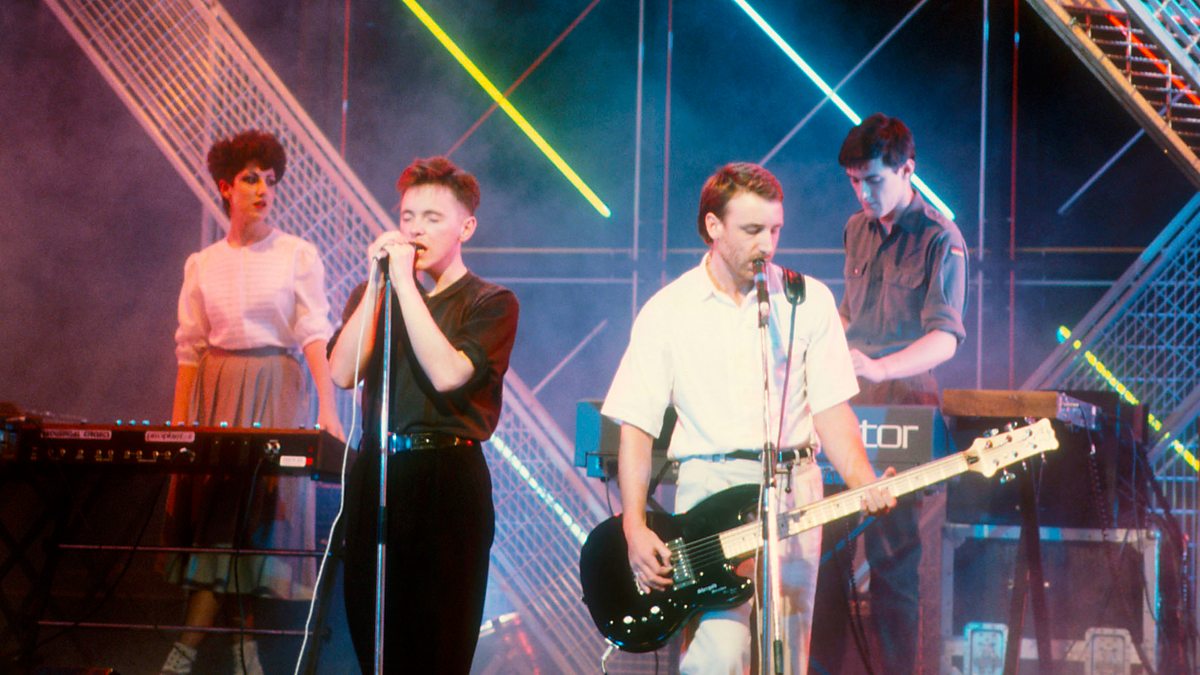Musical Icons: New Order

Rising from the ashes of Joy Division in 1981, New Order quickly became more than just a band—they became cultural icons and one of Britain’s most influential acts, forever intertwined with the musical identity of Manchester. While their rise to fame was rooted in the tragic loss of Joy Division’s frontman, Ian Curtis, New Order's ability to reinvent themselves was nothing short of remarkable. They merged the post-punk sound of their former band with the emerging wave of electronic music, becoming a symbol of innovation, resilience, and the spirit of transformation. As key figures in the evolution of both alternative rock and dance music, New Order has left an indelible mark on the landscape of modern music.
For me, they are more than just artists in my record collection—they have become integral to my personal musical journey. Their ability to blend rock guitars with electronic dance rhythms was groundbreaking. New Order did something no other band before or after has done: they crafted guitar-driven music that makes you want to move, dance, and lose yourself in the sound. Songs like Blue Monday, True Faith, Regret, and Bizarre Love Triangle remain timeless pieces of musical brilliance, continuing to influence not only alternative and dance music but also the broader cultural landscape. These tracks aren’t just hits—they are anthems, pieces of art that have stood the test of time, each song imbued with its own unique atmosphere and resonance.
The band’s songwriting is often overshadowed by their trailblazing sound, but New Order’s ability to combine profound lyrics with infectious, forward-thinking beats is what truly sets them apart. Their music isn’t just about the rhythm or the hooks—it’s about storytelling and creating emotional depth. Tracks like Ceremony, with its raw energy and passion, or Thieves Like Us, with its captivating melancholy, showcase the band’s versatility and depth. New Order's ability to seamlessly switch from dancefloor anthems to introspective, melancholic rock is what makes them so timeless.
My love for New Order also served as a gateway into the broader world of dance and electronic music. From the groundbreaking Blue Monday, a track that forever altered the boundaries of electronic music, to the emotionally charged Temptation, their music opened my ears to the endless possibilities within dance genres. But their influence didn’t end there. The story of New Order is inseparable from the story of the Hacienda, the legendary Manchester nightclub that played a pivotal role in shaping the UK’s rave and club scene. Learning about the Hacienda, both through the music and the stories surrounding it, was like a lesson in music history. The connection between New Order and the venue wasn’t just about their gigs—it was about creating a movement that combined music, culture, and a sense of freedom that resonated across the UK and beyond.
As a fan, New Order gave me more than just music—they gave me an education. Through them, I discovered not only the history of a band but also the rich cultural context that surrounded their rise to fame. New Order taught me to see music as a cultural force that extends far beyond the records themselves. They showed me the power of experimentation, the importance of pushing boundaries, and the beauty of staying true to your artistic vision.
New Order are icons in every sense of the word. Their legacy has endured because they were never content to rest on their laurels; they consistently evolved, challenged themselves, and explored new sonic territories. Their work has inspired countless artists across genres and continues to shape the sound of contemporary music. They are, to me, musical heroes, not just because of their influence, but because they opened doors to new worlds and taught me the power of music as a form of self-expression and cultural dialogue.
And, of course, I can’t forget World in Motion—the ultimate celebration of their versatility. A track that brought New Order into the mainstream consciousness in a way that few could have anticipated, showing that their ability to cross genres wasn’t confined to the underground. It was a chart-topping anthem for the 1990 World Cup, fusing sport, culture, and music in a way that only New Order could.
In conclusion, New Order are more than just a band—they are musical icons, cultural touchstones, and an essential part of my personal soundtrack. Their influence continues to be felt, and their music remains as relevant today as it ever was.
Thanks for reading
Jack